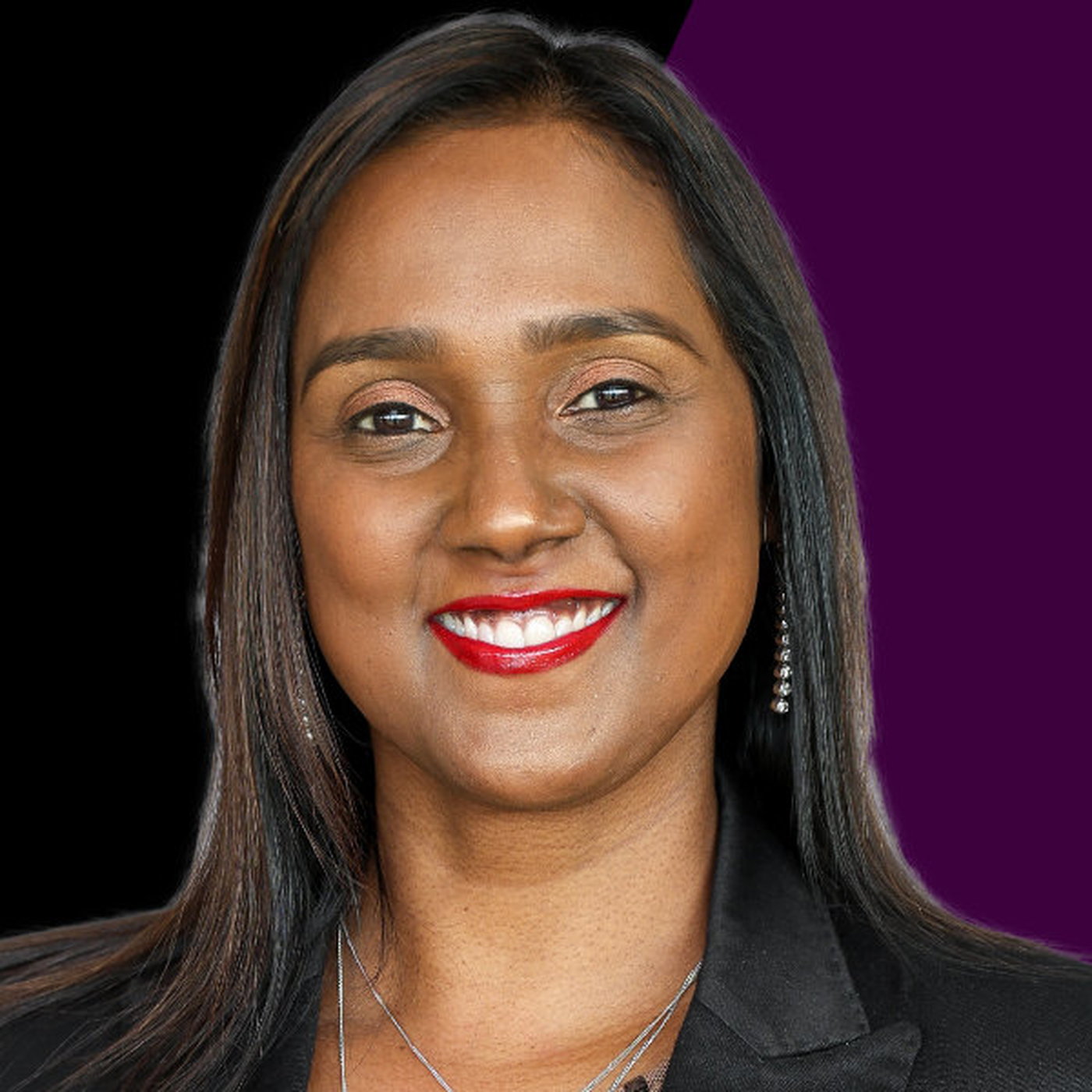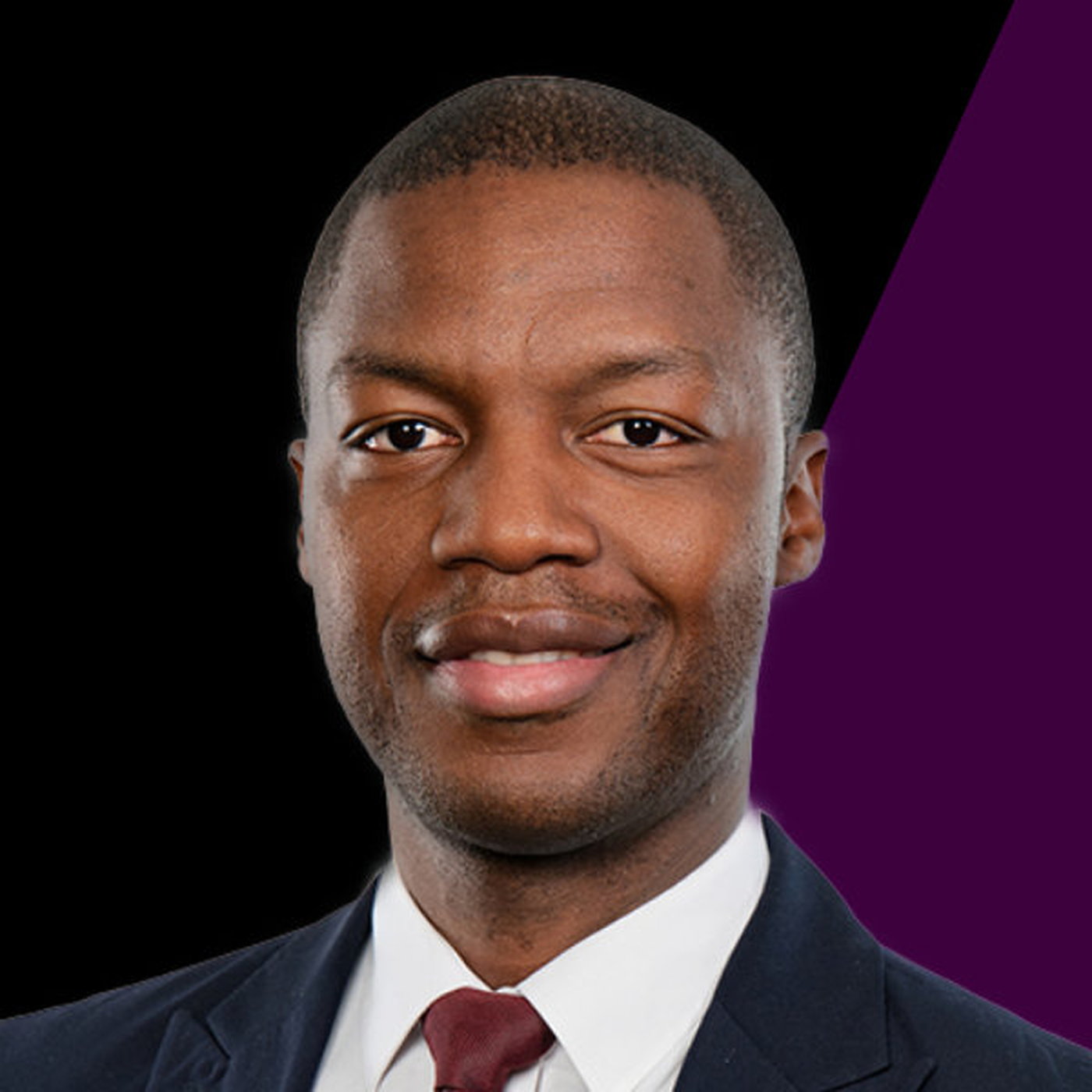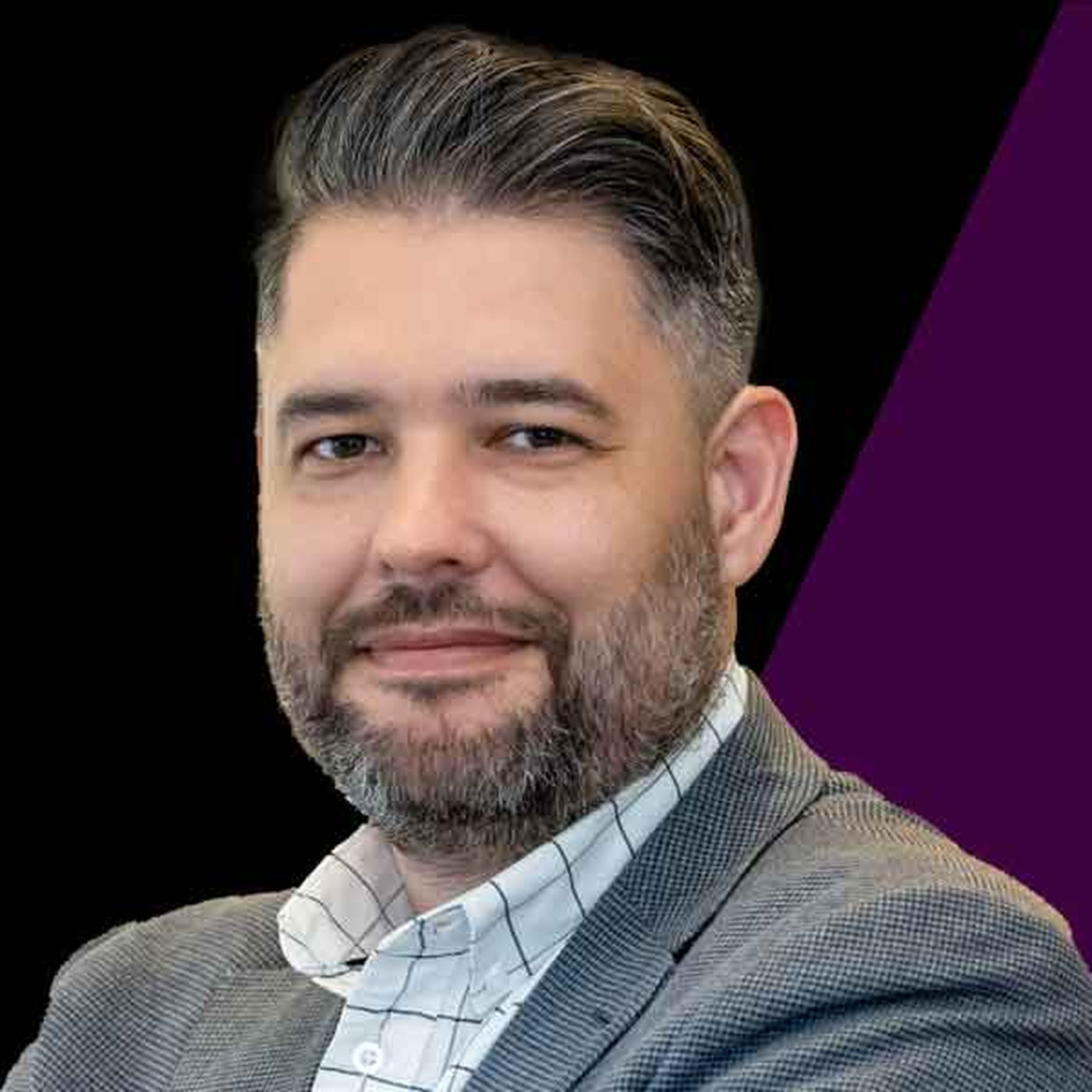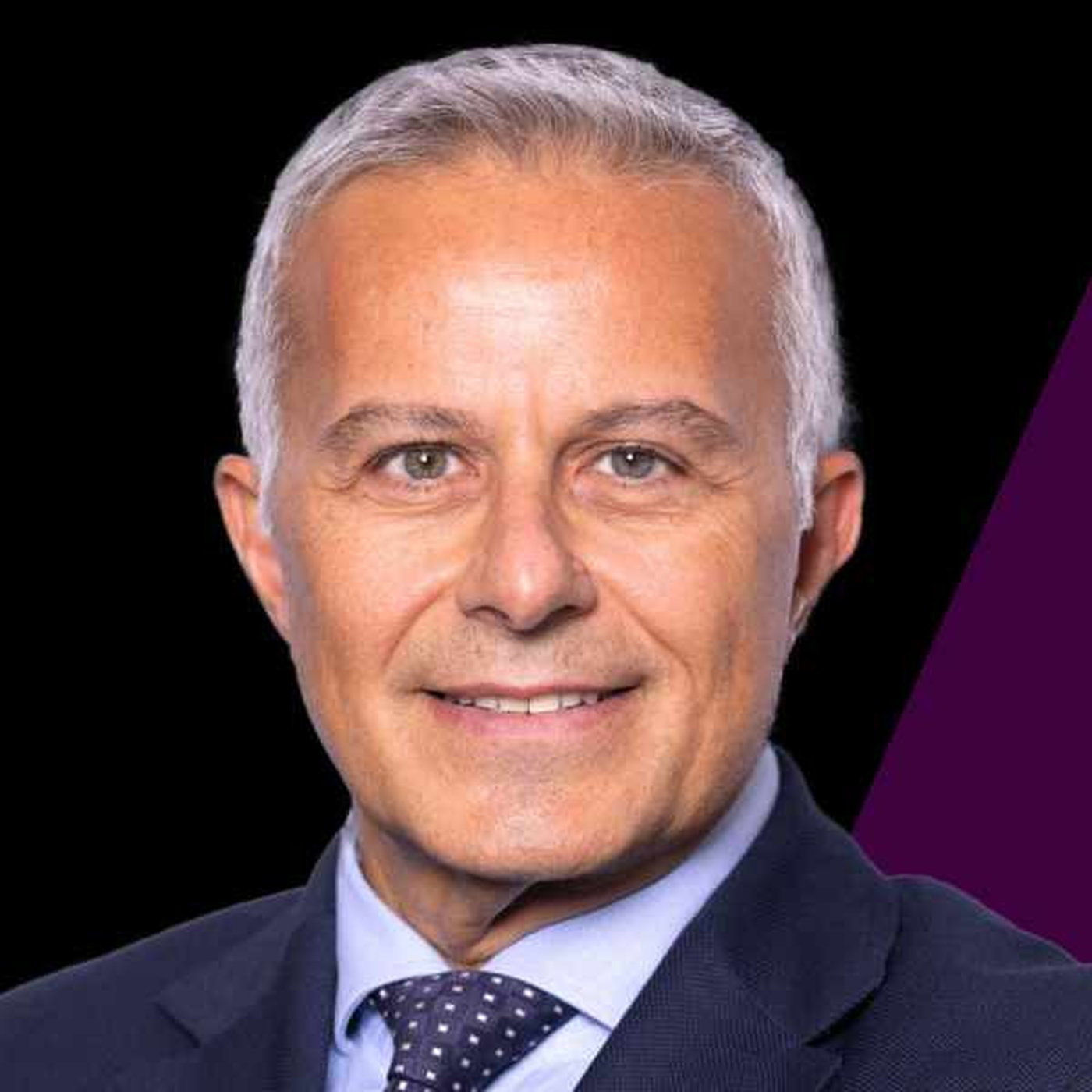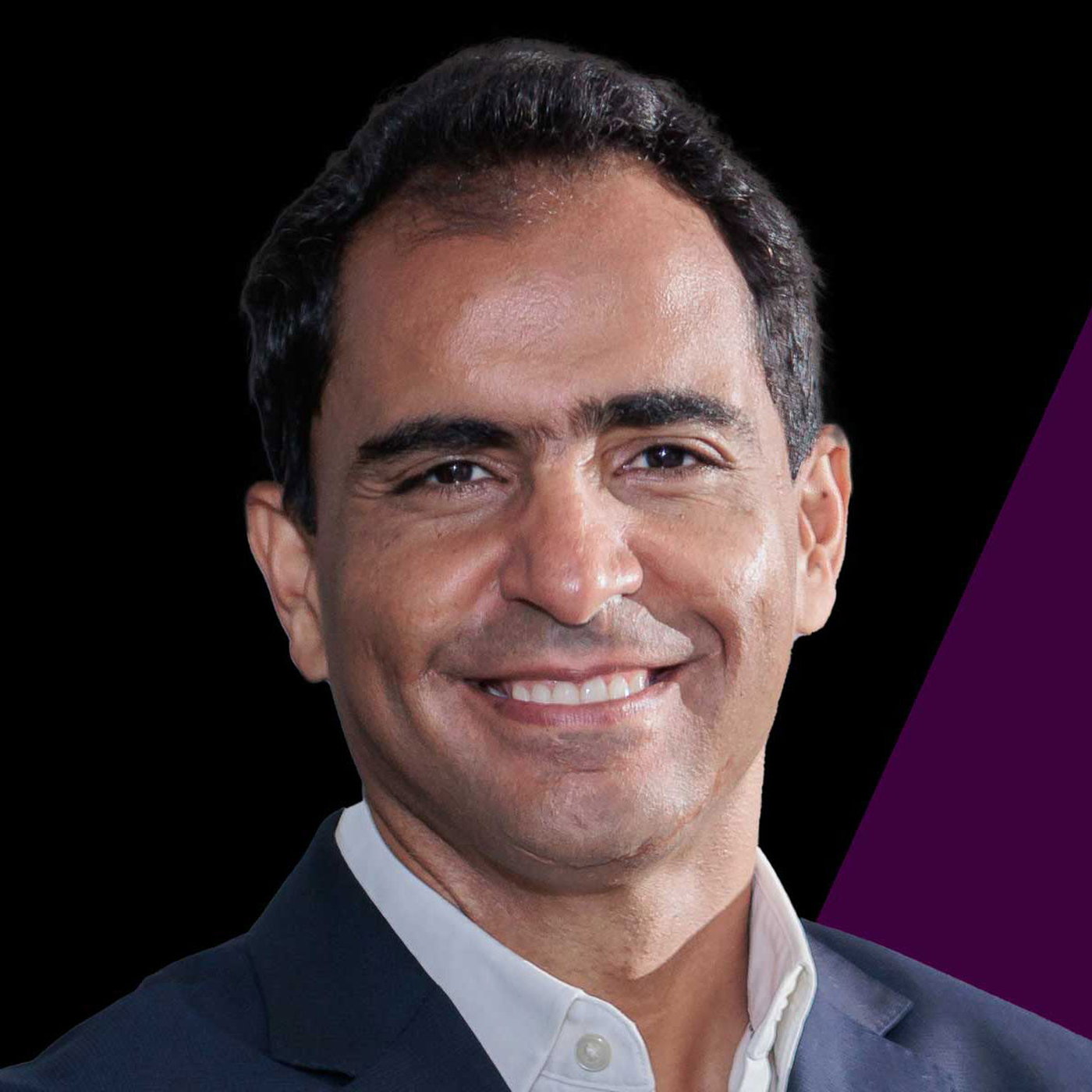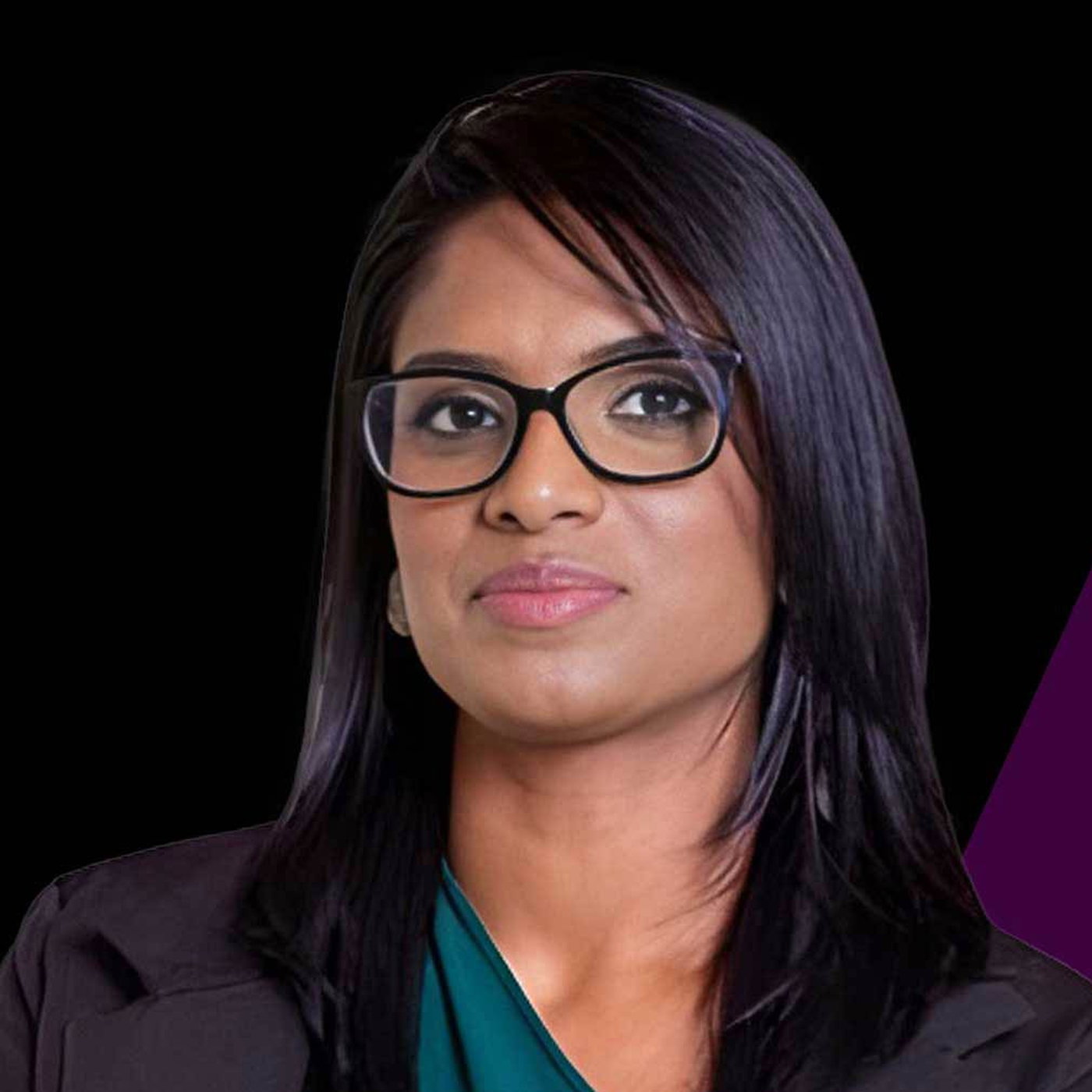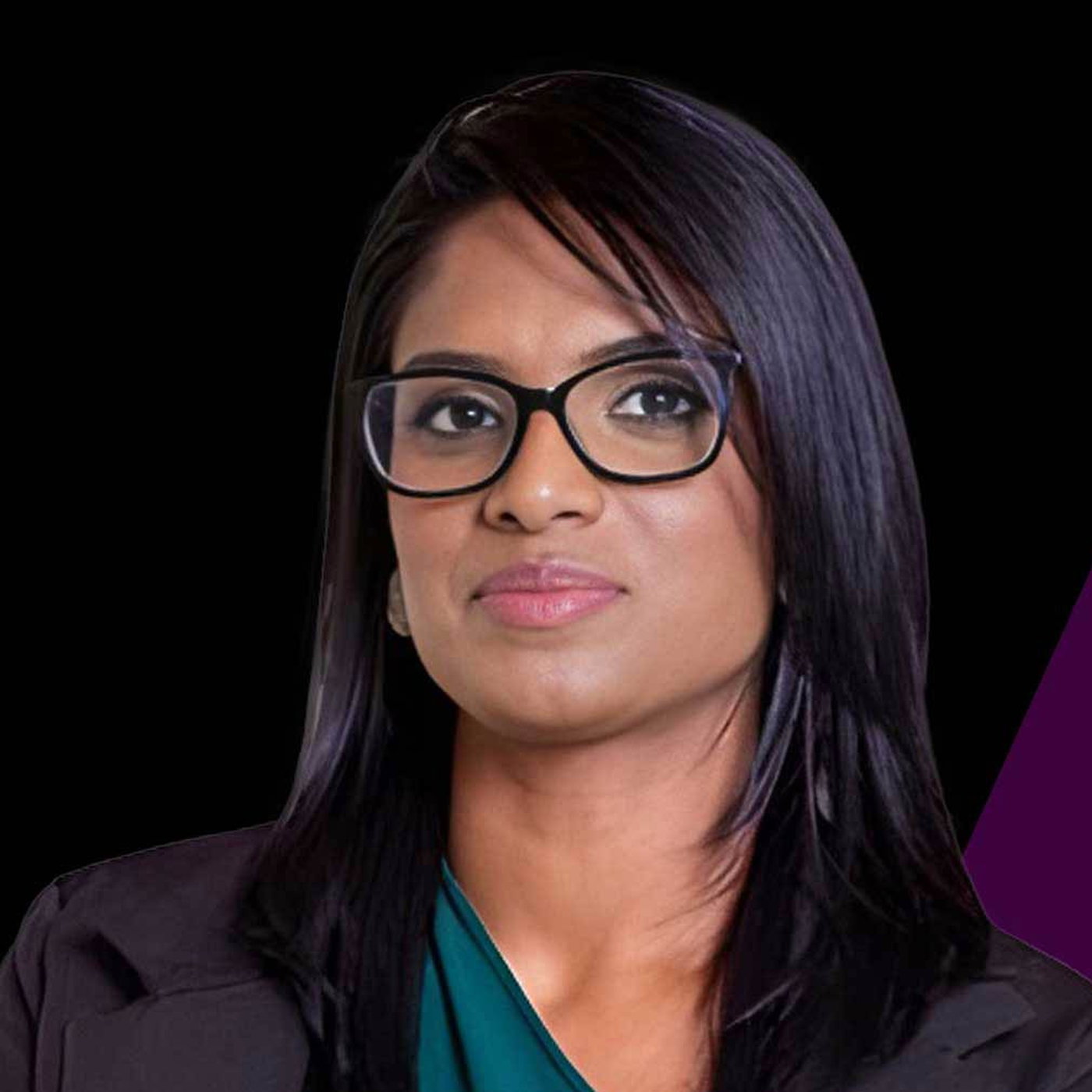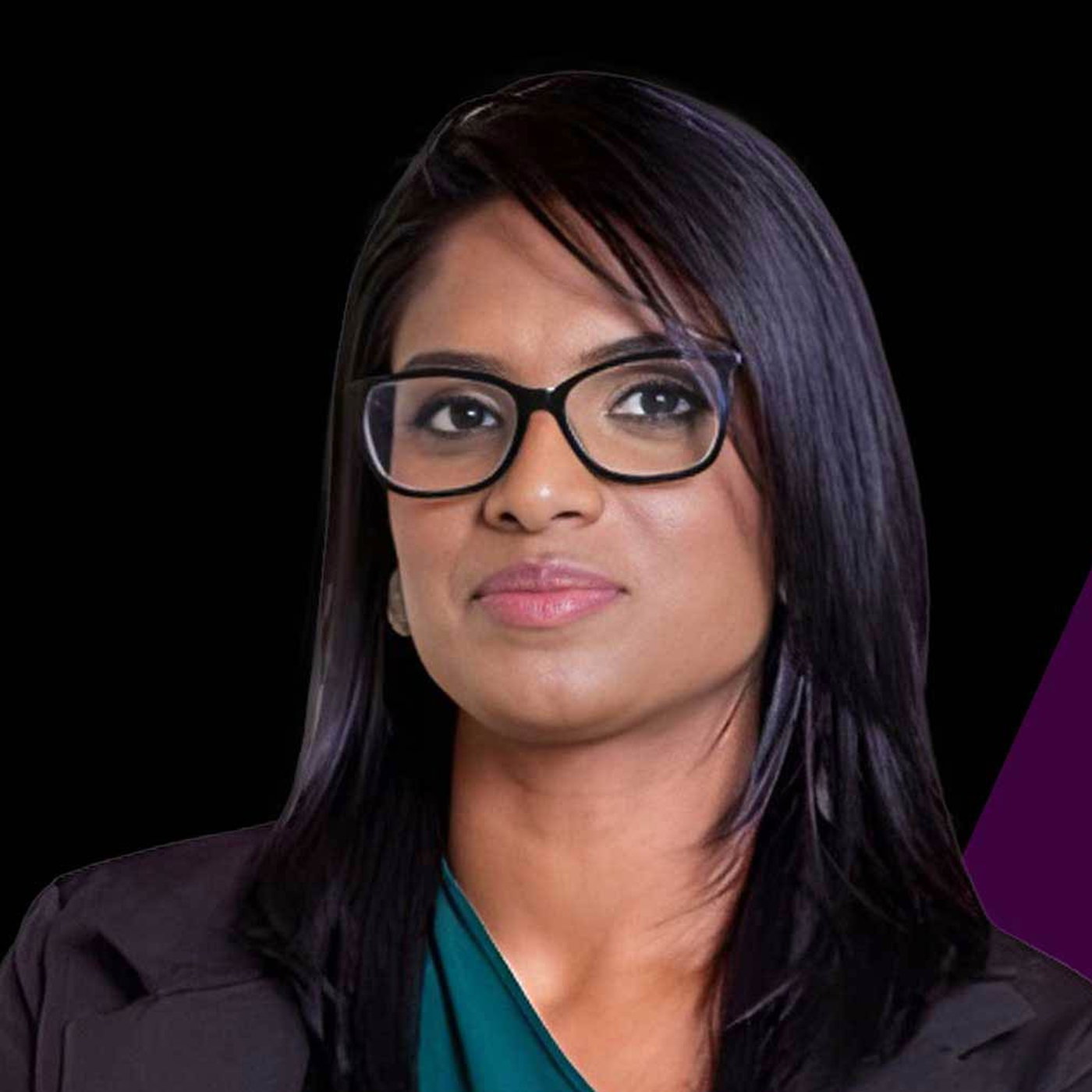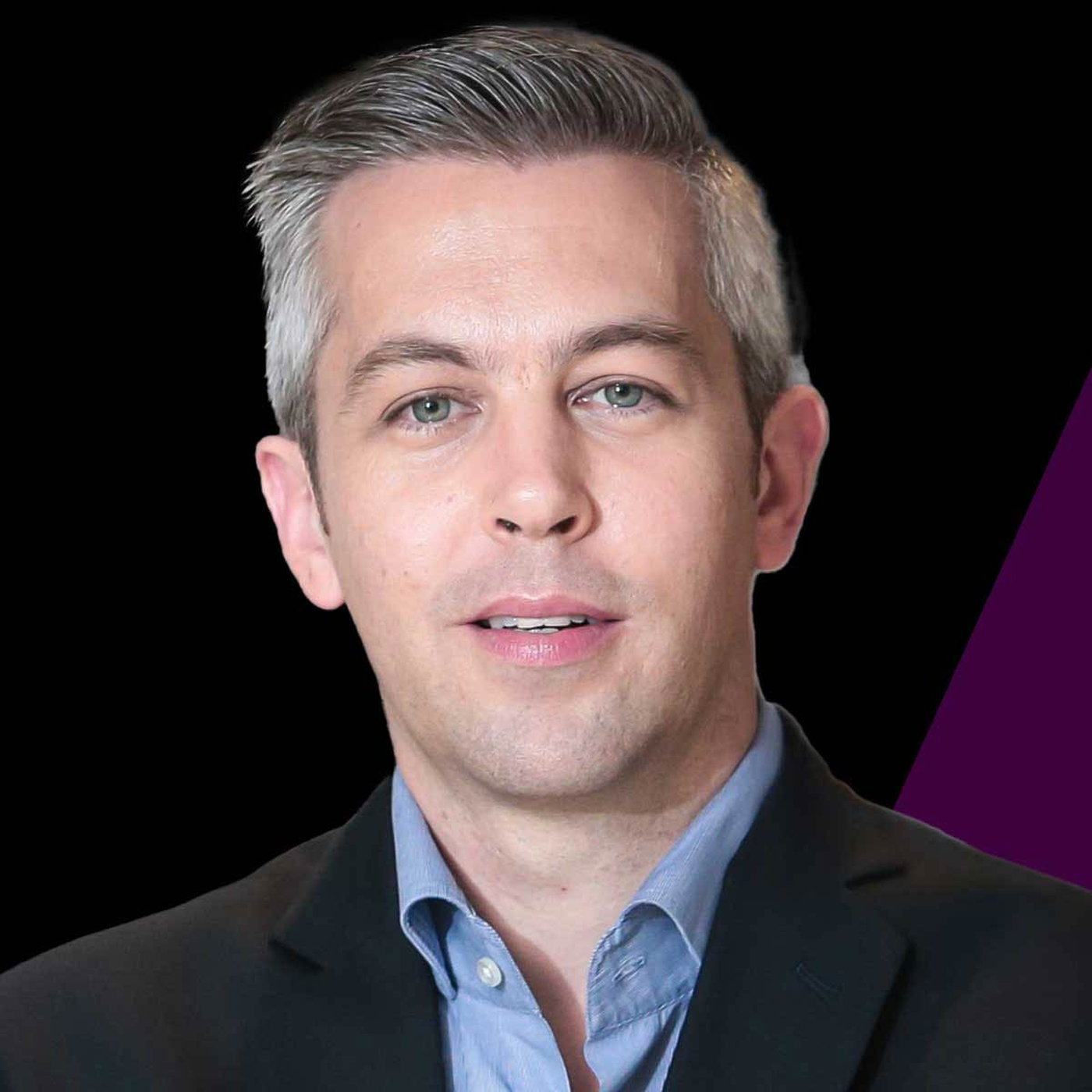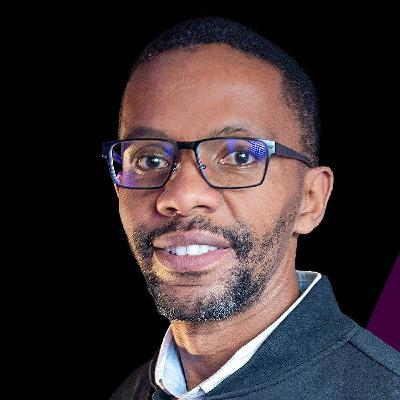Discover TCS+
TCS+

TCS+
Author: TechCentral
Subscribed: 1Played: 1Subscribe
Share
© NewsCentral Media
Description
TechCentral's TCS+ is a business technology show that brings you interviews with leaders in South Africa's technology industry - and further afield. It showcases the latest products and services available to businesses large and small. In short, it offers in a window into what's possible. Episodes of TCS+ are sponsored.
123 Episodes
Reverse
Vodacom Business recently appointed an “extraordinary business advisory board”, a strategic initiative designed to strengthen its enterprise expertise and support organisations on their digital transformation journeys.
To unpack the decision to appoint an advisory board, TechCentral is joined in this episode of TCS+ by Videsha Proothveerajh, director of Vodacom Business, who explains that it’s all part of Vodacom’s shift from being a traditional telecommunications provider to a “techco”, or technology company.
In this episodes Proothveerajh chats about:
• The advisory board, who it is comprised of and the purpose it is meant to serve in the business services landscape in South Africa;
• The fact that the pace of technology change has accelerated coming out of Covid and how this influenced Vodacom Business’s approach to digital transformation;
• How the new advisory board influences Vodacom’s approach to guiding enterprise clients on digital transformation;
• The role the latest telecoms technologies, including 5G and the internet of things, are playing in the business-to-business environment in which Vodacom Business operates;
• How Vodacom Business tailors its digital transformation solutions to meet the needs of different industries or enterprise segments, or indeed of customers that might not be as advanced as others in their application of technology;
• The most common obstacles South African enterprises face when it comes to technology adoption and digital transformation; and
• The emerging trends and technologies that will have the biggest impact on the business market in the next few years.
Don’t miss an informative discussion!
In today’s hyperconnected society, mobile connectivity is key to running a successful business, helping keep employees connected to each other, to organisational resources and to customers.
To manage communications effectively, businesses need to have a clear view of the entire Sim estate across the organisation. Monitoring usage and having the control needed to provide (or restrict) resources such as voice minutes and data quickly and easily are critical to managing costs effectively.
MSB Micro Systems is a company specialising in managed network connectivity for corporate entities. In this episode of TechCentral’s TCS+, MSB Microsystems founder and CEO Danny Stemmet talks about the ins and outs of Sim management.
Stemmet delves into:
• MSB Micro’s history and how the company changed from being a software development house to a services company;
• How the rise of hybrid work environments and remote teams have affected demand for Sim management services, especially among mobile workforces;
• How MSB Micro Systems supports Sims that perform machine-to-machine communications and other internet-of-things functions;
• How MSB’s network-agnostic approach provides flexibility its resellers and, by extension, their clients;
• How MSB’s pricing model supports businesses at every stage growth, helping them scale appropriately when they need to;
• The key benefits for a company that chooses to use a managed connectivity service rather than managing their mobile estate directly with an operator; and
• Why MSB Micro is changing its business model from being a managed service provider to a platform business.
Don’t miss this informative conversation.
When most people think of Amazon Web Services, they automatically assume they should go directly to AWS. However, for the diverse ecosystem of AWS partners – including managed service providers and independent software vendors – the real secret to achieving significant growth often lies in leveraging the distributor model.
Consider this analogy: if AWS is a powerful cloud engine, then the reseller acts as the skilled driver. But who manages the complexities of operating the vehicle, such as maintenance, refuelling, training and necessary pit stops? That administrative heavy lifting falls to the distributor.
In this episode of TCS+, Senzo Mbhele, MD at Cloud On Demand, explains the AWS distribution model and its advantages.
Mbhele discusses:
• The main business challenges that the AWS distribution model addresses;
• How distributors create financial value and improve return on investment for others in the ecosystem, including end customers;
• The support distribution partners provide to internal teams, enabling them to achieve more without the need to hire additional staff;
• The expertise distributors offer to help chief information officers and chief technology officers manage risk, security and governance throughout their cloud journey;
• Common misconceptions that may cause executives to hesitate before partnering with a distributor; and
• Indicators that suggest it might be time for a business to consider the services of a distribution partner, along with the benefits this can bring.
Don’t miss this engaging conversation!
Not every organisation that has migrated to the cloud has reaped the rewards promised in terms of faster development and deployment cycles, simplified infrastructure management, and most importantly, a reduction in costs.
Some are going as far as repatriating their infrastructure back into on-premises environments, perhaps because they understand it better and they find they can more reliably predict their costs there.
Deon Stroebel, chief innovation officer at cloud computing specialist LSD Open, argues against this move, saying that issues relating to cost and efficiency are better solved in the cloud than outside of it.
In this episode of TCS+, Stroebel delves into:
• The biggest mistakes companies make after migrating into the cloud;
• The real difference between just running an application on the cloud versus building it in a truly cloud-native way;
• The mindset shift that comes with cloud adoption and why on-premises thinking should not be applied in a cloud environment;
• How containerisation and DevOps help businesses make their cloud deployments more efficient;
• The cost and performance benefits of modernised cloud infrastructure;
• How to use observability tools to monitor cloud usage; and
• How ensuring their cloud environments prepare businesses to adopt new technologies like AI quickly.
This conversation is not to be missed!
AI has advanced at breakneck speed in the last few years, with most knowledge workers using the technology to enhance their work in some shape or form.
Most of this computing has been happening in the cloud. However, the advent of the neural processing unit, or NPU, has made it possible to move AI computation to the edge, which not only improves speeds but also protects personal and company data.
In this episode of TechCentral’s TCS+, we were on location at the Maslow Hotel in Sandton where HP recently hosted its 2025 Future of Work event. The event brings together industry leaders, decision-makers and innovators and explores the evolving landscape of work in the age of artificial intelligence.
Ertug Ayik, vice president and MD for Middle East and Africa at HP, connects the dots between the company’s new AI-infused product line and broader concepts shaping the way in which work is being done.
Ayik delves into:
• HP’s shift from a product focused company to a solutions and services outfit;
• Why on-device AI processing capability has become a priority for HP;
• The advantages on-device AI have for performance, security and power efficiency;
• HP’s strategy for South Africa and the African continent;
• Key initiatives HP is driving across Africa; and
• What to expect from HP in the coming years.
Don’t miss the conversation!
What does it really take to defend a business in an era of AI-driven attacks?
In this episode of TechCentral’s TCS+ ,Clare Loveridge, vice president and GM for Europe, Middle East and Africa (Emea), and Johnny Ellis, senior director of Emea channel sales, both at Arctic Wolf, go beyond the buzzwords to confront the uncomfortable truth: despite billions spent on security tools, cyber losses are still mounting.
Arctic Wolf’s answer is a different model, one that combines its artificial intelligence-powered Aurora Platform with human expertise in a concierge delivery approach. It’s a strategy that tackles the industry’s “effectiveness gap” head-on by integrating people, processes and platforms to deliver outcomes, not just alerts.
The conversation is blunt about the shifting threat landscape: AI has overtaken ransomware as the top emerging risk, and no single tool can fix it. What organisations need is visibility at every layer – from endpoints and cloud to people.
Equally compelling is Arctic Wolf’s commitment to channel-first partnerships in South Africa, ensuring trusted local expertise underpins global innovation.
From the acquisition of Cylance Endpoint to the launch of Incident Response 360, the company is pushing to redefine what operationalised security means. But the biggest takeaway is simple: cyberattacks are no longer an “if” but a “when” – and every organisation needs a plan.
Watch or listen to the full discussion to explore why Arctic Wolf believes security must move beyond tools to become a living, breathing business function – and how leaders can finally start sleeping better at night.
Fintechs choose cloud technologies in the hopes that the efficiency and scalability of cloud computing will give them a competitive advantage. But cloud adoption is no silver bullet. If done incorrectly, a migration to the cloud can cause costs to balloon instead of decreasing them, leading to frustration and even lost revenue.
Kinetic Skunk is an Amazon Web Services-certified partner offering cloud solutions with a specialisation in fintech start-ups. In this episode of TechCentral’s TCS+, Donovan Mulder, CEO at Kinetic Skunk, explains the ins and outs of cloud adoption for fintech companies.
Mulder delves into:
• The importance of timing when it comes to cloud adoption and when the best time is to plan for a migration into the cloud.
• Common errors fintechs that have already migrated to the cloud make that can cause costs to balloon out of control.
• Why developers are often not the right people to handle cloud infrastructure architecting and provisioning (hint: it’s a completely different skill set).
• How gaps in cloud infrastructure architecture can lead to security holes.
• The cost optimisation tools available in the AWS cloud environment.
• How tools such as the AWS well-architected framework help fintech’s comply with regulations such as Popia and Fica.
• Advice for South African fintechs before their next cloud bill arrives.
Don’t miss the discussion!
In this episode of TCS+, Adil El Youssefi, newly appointed CEO of the colocation business at Cassava Technologies and CEO of Africa Data Centres, chats about the challenges and opportunities in sub-Saharan Africa.
El Youssefi delves into:
• His background prior to being appointed into the role and how it has influenced his career as a technologist;
• His personal connection to the African continent and why growing its digital economy excites him;
• The data traffic boom taking place in Africa and the drivers behind it;
• The industries fuelling the demand for data centre capacity on the continent;
• The infrastructural challenges dampening data centre growth and the different ways they are being surmounted; and
• What the future of data centres looks like in sub-Saharan Africa;
Don’t miss the discussion!
Folding phones are advancing at light speed. For consumers, the appeal is self-evident: on one hand, folding phones give them the option to have a larger, tablet-like interface that offers enhanced productivity and a better user experience. On the other hand, the fit-in-your-pocket design when folded maintains easy portability.
Samsung pioneered the folding phone category in South Africa with the first-generation Galaxy Fold in 2019. The Z Fold series is now in its seventh generation, with the Galaxy Z Fold7 and Galaxy Z Flip7 launched earlier this month.
In this episode of TechCentral’s TCS+, Zahir Cajee, mobile experience lead for product and commercial services at Samsung South Africa, talks through the design elements and software features in the newest foldables.
Cajee delves into:
• What smartphone manufacturers like Samsung are trying to achieve with foldable phones;
• The market segments Samsung’s Z Fold and Z Flip phones appeal to;
• The latest features in the new Z Fold7 and Z Flip7;
• The Z Fold7’s new 200-megapixel camera;
• Samsung’s thinking behind the introduction of the lower-cost Samsung Flip7 FE;
• The AI features in the new Galaxy Watch8; and
• When the new devices are going to be available and how much they’ll cost.
Don’t miss the discussion.
IT security breaches are on the rise in South Africa and worldwide, and with AI tools at their disposal, criminals are scaling up their attacks.
With the risk of attack so high, organisations are forced to look beyond beefing up security – they must prepare for the unfortunate event where their systems are, in fact, breached. One way to do this is to learn from those organisations whose systems have been breached in the past.
This episode of TechCentral’s TCS+, the third in a series of three with First Distribution on how to manage cyber crises – watch episodes 1 and 2 here – sees Microsoft portfolio manager at First Distribution Kejen Pillay back to share more insight on this topic.
Pillay discusses various lessons from:
- The TransUnion breach of March 2022, where 5.2 million records were compromised and a US$15-million ransom demanded;
- The CIPC hack of February 2024 and the media furore that ensued; and
- The National Health Laboratory Services breach of June 2024.
Don’t miss this important discussion.
In cybersecurity, prevention is always better than cure. However, organisations have to prepare for the worst-case scenario, one where their systems are breached by cybercriminals.
This is the second in a series of three podcasts on how to manage cyber crises effectively when they happen. The first episode – watch it here – centred on defining what a cyber crisis is and the different ways cybercriminals exploit an organisation.
In episode 2, Kejen Pillay, portfolio manager for Microsoft at First Distribution, discusses the strategies and tools organisations use to craft an effective crisis response plan.
Pillay delves into:
• The elements of an effective crisis response plan;
• The Microsoft tools businesses can use to prepare for a cyber crisis;
• Backups and other tools that aid in the speedy recovery of operations following a cyber crisis;
• The importance of training non-IT staff on what to do in a cyber crisis;
• How AI tools can help protect organisations; and
• Advice for organisations wanting to begin crafting their cyber crisis response plan.
Don’t miss the discussion.
In today's hyperconnected society, a cybersecurity crisis isn’t just a technical glitch; it's a profound disruption that can bring businesses, governments and even entire countries to a halt.
For organisations to protect themselves effectively, they must understand what cybercriminals are capable of, where the vulnerabilities in their own systems are and – most importantly – be prepared for the worst-case scenario where their systems are breached.
In this episode of TechCentral’s TCS+, Kejen Pillay, Microsoft portfolio manager at First Distribution, discusses the anatomy of a cyber crisis and how businesses should prepare for it.
Pillay delves into:
• The difference between a cyberthreat and a cyber crisis;
• How cybercriminals are using AI tools to develop increasingly sophisticated methods of attack;
• How organisations can keep pace with the rapid changes in the threat landscape to keep their systems secure;
• The difference between a crisis management plan and an incident response plan;
• Some common errors businesses make when responding to a cyber crisis; and
• What South Africa’s leading organisations are doing to prepare for a cyber crisis.
This informative show is not to be missed.
Data is like oxygen in the digital era, and people are using more of it. In 2025 alone, global mobile data usage is projected to reach 200 exabytes per month. That is 200 billion gigabytes of data consumed monthly by everything from high-definition video streaming to online gaming and IoT.
This trend has implications for infrastructure – in the home, in business and even in shared outdoor spaces. For the people consuming the data, connecting with ease as they migrate between different environments is paramount; but so is the privacy and integrity of their personal data.
In this episode of TCS+, Vox Wi-Fi product manager Craig Blignaut discusses the trends in data consumption, their drivers and how Wi-Fi technology is evolving to meet people’s needs.
Blignaut delves into:
• Why data has become the lifeblood of modern society;
• How newer technologies like generative AI are shaping trends in data consumption;
• The different ways people gain access to the internet;
• How Wi-Fi has contributed to making the internet cheaper and more accessible;
• How an enterprise’s Wi-Fi experience contributes to how visitors experience a company’s brand; and
• The role is AI playing in enhancing network connectivity.
Don’t miss an informative discussion.
Samsung Electronics recently launched the latest line-up of its popular Galaxy A-series of midtier smartphones, with the A26, A36 and A56 replacing the older A25, A35 and A55 models.
One of the most notable new features of the A-series is a curated artificial intelligence module, dubbed Awesome Intelligence, that brings powerful AI features previously exclusive to its top-tier Galaxy S-series phones to its midrange devices for the first time.
Unique to the A-series is a new safety feature called Samsung SOS+, a free-to-use, 24/7 subscription service exclusive to owners of the new Galaxy A56, A36 and A26 devices.
In an emergency situation – and on-demand – the service immediately geolocates the user and sends private security and medical emergency services to their location at the press of a button.
In this episode of TCS+, Justin Hume, vice president for mobile at Samsung Electronics South Africa, tells TechCentral about how SOS+ works in the new Galaxy A-series line-up.
Hume delves into:
• The inspiration behind SOS+ and why Samsung has chosen the A series to pilot the service;
• How the service works and its benefits for A-series smartphone users;
• Why the service is currently limited to users of the A56, A36 and A26 devices and Samsung’s plans for expanded roll-out;
• Key features that set the SOS+ service apart; and
• Why Samsung has chosen Aura as its partner in providing the SOS+ service.
Don’t miss a fascinating discussion!
For years, mobile telecommunications was dominated by a handful of large operators, or MNOs. Now, with almost 30 MVNOs, or mobile virtual network operators, serving niche consumer bases in banking, retail and education, among other sectors, the MVNO market is thriving.
However, brands looking to take advantage of this boom and add mobile services to their offerings are not guaranteed success. There are several critical decisions regarding strategy, process and choosing the right technology platform that are key to building a critical mass of loyal MVNO customers.
In this episode of TCS+, Daniel Swart, chief commercial officer at MVNX, an MVNO enablement specialist, discusses the opportunities and threats facing MVNOs in South Africa today.
Swart Delves into:
• The services MVNX, as an MVNO enabler, offers to brands looking to launch MVNO services in South Africa;
• How South Africa’s MVNO market has developed since its inception in 2006 with the entry of now-defunct Virgin Mobile;
• The markers of success separating successful MVNOs from those that have struggled to gain a foothold in the market;
• The benefits MVNO brands reap from using an enablement platform to launch and distribute their mobile services;
• The importance of understanding the competitive dynamics of the MVNO market and how new MVNOs should position themselves;
• The regulatory aspects of running an MVNO; and
• International MVNO trends Swart believes are likely to be emulated in South Africa.
This discussion is not to be missed.
The pace of innovation in the cloud space is breathtaking. Gone are the days when the cloud was just about virtual machines and storage; today, it is a dynamic ecosystem, constantly introducing features that are fundamentally transforming how businesses operate, from the smallest start-ups to the largest enterprises.
Preegan Chetty, Azure product manager at First Distribution, returns to TechCentral’s TCS+ to discuss some of the latest and most exciting features available in the Azure cloud environment and how businesses are leveraging those capabilities to facilitate growth.
This is the third in a series of three episodes with Chetty and First Distribution. Episode one covered cloud cost optimisation in Azure and episode two looked at how businesses can manage the complexities of data residency in hybrid cloud environments.
In this episode, Chetty delves into:
• The benefits cloud-based IT environments offer over on-prem installations and how they help companies experiment and adopt new technologies faster;
• How businesses can ensure they are able to keep pace with new technologies so they are not left behind;
• How South African businesses are using the newest AI tools in Azure to build new products and services;
• How to approach responsible AI development in the cloud;
• How cloud AI tools can help with code modernisation;
• How small businesses can take advantage of cloud technology; and
• Emerging cloud technologies to keep an eye on.
This discussion is not to be missed.
Data is the lifeblood of every organisation, driving innovation, enhancing customer experiences and influencing strategic decisions.
But managing this invaluable asset has never been more challenging. Hybrid IT environments – where some organisational data sits in the cloud other data resides in on-premises infrastructure – only adds to this complexity.
In this second episode in a series of three delving into the ins and outs of Azure cloud deployments, Preegan Chetty, Azure product manager at First Distribution, discusses the data governance procedures that ensure organisational data is stored in the most useful, cost-effective and compliant ways.
The first episode centred on effective cost management techniques for the Azure cloud environment. You can watch that episode here.
In this episode, Chetty delves into:
• Why the complexity of data governance increases when organisations migrate from on-premises to hybrid cloud environments;
• The factors organisations should consider when deciding which data they should keep where;
• What Dora legislation is and how it affects the hybrid data strategies of South African organisations;
• Other legislation impacting data governance in South Africa;
• The tools Azure provides to help data architects structure distributed data in ways that do not have a negative impact on performance;
• Data governance for disaster recovery; and
• The impact data governance decisions have on an organisation’s cloud costs.
Don’t miss an informative discussion!
Organisations are flocking to the cloud for its agility, scalability and innovation potential. But while the cloud promises big things, it also presents a set of financial challenges.
Many businesses find their cloud bills spiralling out of control, eroding the very benefits they sought in the first place.
In this episode of TechCentral’s TCS+, Preegan Chetty, Microsoft Azure product manager at First Distribution, discusses the tools Azure provides for effective cost management and how businesses can take advantage of them to get the most out their cloud deployments without breaking the bank.
Chetty delves into:
• Some of the common pitfalls or hidden costs that organisations encounter when moving their workloads into the cloud and how to mitigate against these;
• The different pricing models available in Azure and how organisations can leverage them;
• What FinOps is and how businesses can benefit from it;
• How organisational KPIs can be leveraged to manage cloud spending effectively;
• How tagging can aid in cost centre management;
• How to manage costs in more complex hybrid cloud environments; and
• The AI tools Azure offers to aid businesses in managing their costs.
This episode is not to be missed.
Many municipalities in South Africa are struggling to maintain a reliable supply of clean water to households and industries. Thankfully, technology is here to help.
In this episode of TechCentral’s TCS+, Helen Hulett, newly appointed chief sustainability officer at geospatial information science specialist AfriGIS, tells Duncan McLeod about the Resolve Water project that she leads and how she and her team are working with businesses and municipalities to try to address a problem that has reached crisis levels in some parts of the country.
AfriGIS’s technology is able to have a real-world impact on this crisis, according to Hulett, who specialises in industrial water risk, water-related governance and social issues, and sustainability.
Hulett, who has consulted with leading companies on the topic – they include the likes of Coca-Cola, Illovo Sugar Africa, Sappi, Aspen Pharmacare and Sasol – said AfriGIS offers advanced mapping and data analytics tools to address water scarcity, improve resource management and support businesses in need.
In this episode of TCS+, Hulett also unpacks:
• Her background and why she took the role of chief sustainability officer at AfriGIS;
• What the field of geospatial information science involves and why it makes sense to apply it to this crisis;
• AfriGIS’s involvement in the Resolve Water project;
• How serious the water crisis really is in South Africa and what it will take to address it;
• The impact of the Resolve Water project so far, and how it’s using GIS technology to achieve its goals – including mapping, real-time data analytics and collaborative partnerships; and
• The role of artificial intelligence.
The interview with Hulett, who is passionate about the topic of water security in South Africa, is not to be missed.
Mobile money has an increasingly vital role to play in South Africa’s economy, despite the fact that the country boasts an advanced financial services sector.
That’s the view of Kagiso Mothibi, CEO of Fintech at MTN South Africa, who was sharing his views in a recent interview with TechCentral’s TCS+ (watch it below) in which he discusses the broader fintech vision for the network operator and its role in driving innovation across the group.
But what is it about mobile money services that is attracting South African consumers to products like MTN’s MoMo, and what role do these platforms fulfil in the broader financial services ecosystem?
Mothibi unpacks this in detail in the interview. He also discusses:
• Why South Africa has proved to be a tougher mobile money market to crack than many other countries in Africa;
• How the South African market differs from others in which MTN operates;
• Who the target market is for MoMo – is it the unbanked and underbanked, or does MTN also have plans to serve well-heeled customers, too?
• What’s driving the growth in MoMo services in South Africa and why;
• What MTN’s fintech portfolio houses today and the company’s plans to expand this in the coming years;
• The recent launched of MoMo Pay, how it works and how MTN is onboarding merchants;
• What pain points MoMo Pay addresses in the payments ecosystem; and
• What the future holds for the fintech business in South Africa – and how product innovation locally is being deployed in other MTN markets across the continent.
Don’t miss an exciting interview!


